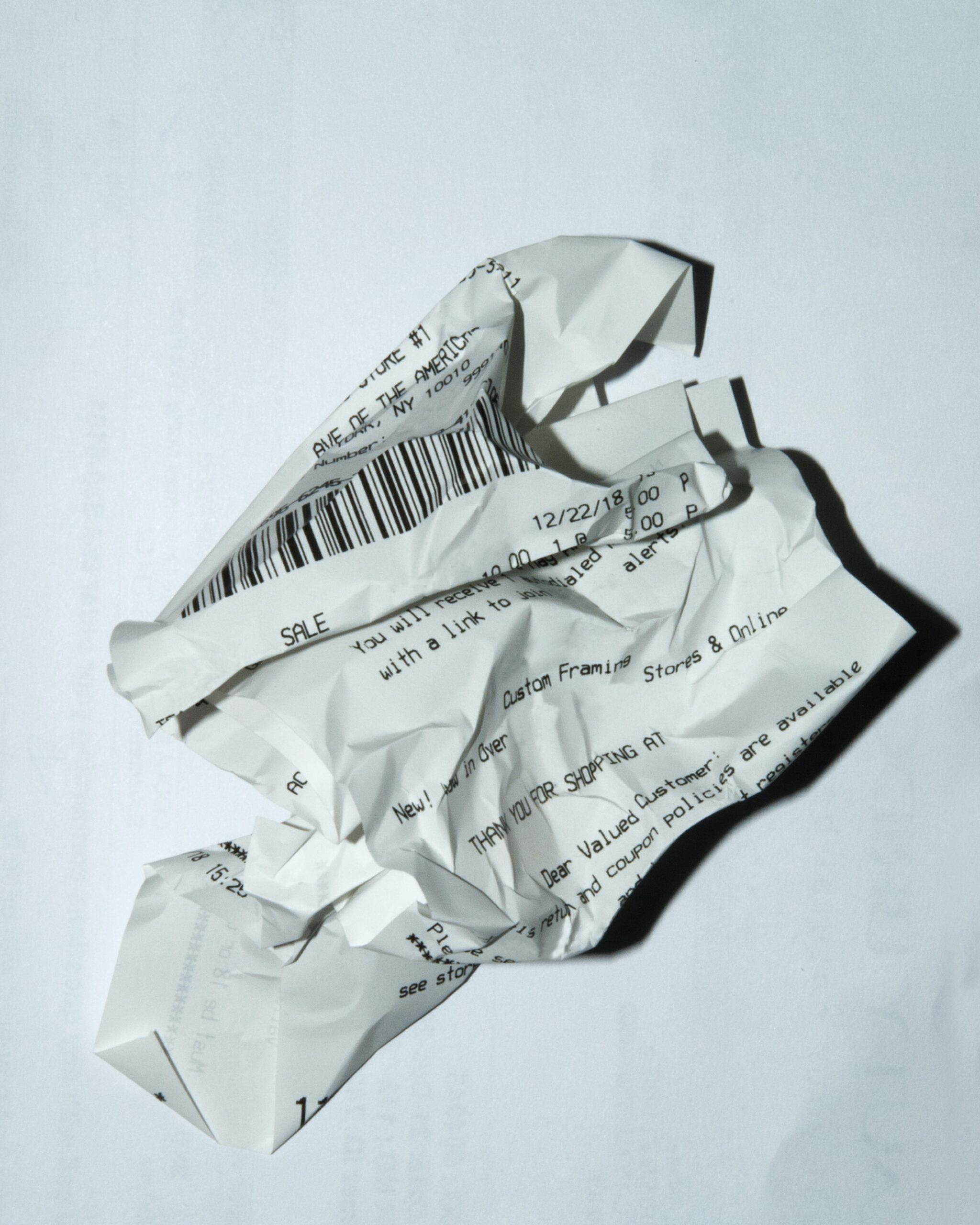As a business or registered charity or non-profit in Canada you are required to keep accurate books and records to file tax returns with provincial and/or federal agencies on a regular basis. And if you are on our website and reading this blog, you probably already know that one of the best ways to stay on track with your organization’s finances and government filings is to get professional help. When working with a bookkeeper you may find yourself asking, “Why are they SO nitpicky about receipts?” So let me share with you, as someone who was trained in the Audit Division of the Canada Revenue Agency (CRA) and has worked as a professional bookkeeper for over 10 years, why receipts are so important.
Income Tax Compliance
It is difficult and sometimes impossible for bookkeepers to guess what you purchased and categorize it properly without a receipt. Miscategorization of expenses make your internal reports less useful and can also cause tax problems. One way that the Canada Revenue Agency (CRA) flags tax returns for review is when reported expenses are drastically different from prior years or if they are out of line with the average amount similar organizations spend. Providing your bookkeeper with detailed information about your purchases helps ensure that they are categorized correctly and minimizes unexplained variances.
When your Income Tax return is under review, the CRA will request copies of receipts totaling the amount of expenses you claimed on one or more lines of your tax return. For example, if you claimed $6,275 for Dues and Subscriptions, they may request copies of receipts for every purchase adding up to this amount. If you are unable to provide receipts or invoices, an Income Tax auditor may allow some expenses at their discretion if you provide other supporting documentation like bank statements. However, this should not be relied upon (since it is at their discretion) and would not be sufficient for a GST/HST review.
Excise Tax (GST/HST) Compliance
If you are registered to collect and remit Federal Sales Tax (GST/HST), if your HST return gets reviewed, you will be asked to provide detailed receipts for some or all Input Tax Credits (ITCs: the HST you paid on purchases) claimed. If you can’t provide a receipt with the specific information required, Excise Tax auditors have no discretion to allow the claim, and you will have to repay the amount plus interest to the CRA. To qualify for an ITC, the receipt or invoice must show the name of the supplier, the date of the transaction, the HST amount paid, the total, and the GST/HST registration number of the supplier.
Sometimes you may get a transaction receipt, like the copy that is printed from the payment terminal at a restaurant, or an email confirming that you’ve paid an invoice by credit card. These types of confirmations are not sufficient for claiming an ITC. Ask the vendor for a copy of the receipt or invoice that shows a detailed breakdown of your purchase as described above. Invoices over $150 should also include the name of the purchaser (your business/organization), a description of the items purchased, and the payment terms (more information available here). By providing this information to your bookkeeper before the ITC claim is made, they can help make sure it fits this criteria, and they will have a copy of the document should you need their assistance compiling information for an audit or review.
Get Organized
To protect ourselves, and you, our policy at Common Good Bookkeeping is to not claim ITCs without documentation. Every week (or month, depending on the frequency of your service) we will send you a list of transactions that you did not send receipts for so that you have an opportunity to provide them. Many of our professional colleagues follow a similar process, so if your bookkeeper does not, you might want to ask yourself (and them!) why not.
The easiest way to organize your bills and receipts and submit them to your bookkeeper is digitally. It also makes it easier if you do get reviewed by the CRA, because they will most likely ask you to submit your documents electronically through their online portal. The two most popular receipt organizing apps in Canada right now are Hubdoc and Dext. Each one has slightly different features, but are overall similar in the ways that you can upload your documents to them (i.e. phone app, email forward or via web browser) and how you and your bookkeeper will interact with the software. Importantly, both will allow you to easily download copies of any receipts or invoices should the CRA ever ask to see them.
If you want to learn more about how we can help you stay organized and tax compliant, I offer a free 30-minute consultation. Click here to fill out our questionnaire and I will reach out to you to set something up.




